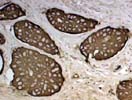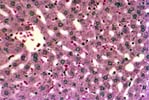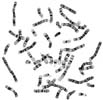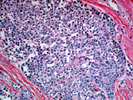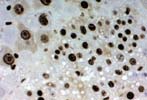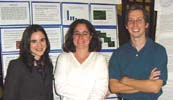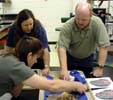Philosophy and History
Environmental Pathology Training Program Philosophy and History
This program provides support for postdoctoral and predoctoral training in experimental pathology of cellular lesions and diseases produced by chemical and physical hazards of the environment (Environmental Pathology). We provide qualified and highly motivated individuals with the intellectual climate and the resources to train as scientists in this field. The ultimate goal of this program is to help our trainees develop into successful independent investigators who study the mechanisms of environmentally induced disease.
Experimental pathology encompasses the laboratory investigation of the cause and mechanisms of development of disease. It represents the merger of classical morphological methods of cell and tissue analysis with modern techniques of cellular and molecular biology. A distinctive aspect of experimental pathology is the use of molecular biology methods to study the interaction of etiologic agents and cellular macromolecules, and the application of this information to the analysis of the mechanisms of disease development at tissue, organ and whole animal levels. Experimental pathologists must have a broad background in the basic biomedical sciences combined with a detailed understanding of some aspects of the molecular biology of eukaryotic cells. The experimental pathologist must be acquainted with both the language and methods of analysis of the clinician, who deals with disease at the level of the whole organism, and of the laboratory scientist, who understands the underlying scientific basis of cellular function. Formal training in laboratory research is required to educate experimental pathologists in research design and interpretation and in the technology to carry out research projects. Such training must be combined with a sound understanding of the tissue and organ expressions of disease. Scientists who possess such expertise are highly valued in research, especially those that undertake studies on the mechanisms by which chemicals and cellular macromolecules interact to produce disease. This is the essence of environmental pathology.
The Environmental Pathology Training Program in the Department of Pathology and Laboratory Medicine at the University of North Carolina has been supported by a grant from the National Institute of Environmental Health Sciences since 1975. During this period of support, the Program has trained predoctoral students and postdoctoral fellows who have taken jobs in academic institutions, government laboratories, and industry. The Program has faculty members from the Department of Pathology and Laboratory Medicine, as well as several other departments in the UNC School of Medicine, who are focused in strong research programs, and has adjunct faculty with related interests from research institutions located in the nearby Research Triangle Park.
Department of Pathology and Laboratory Medicine home
